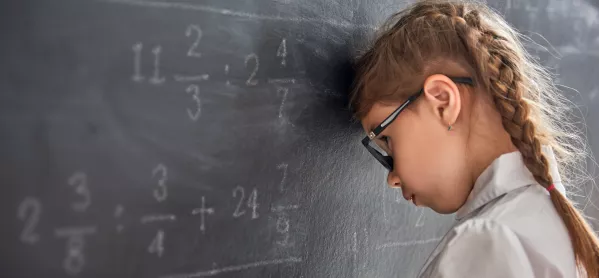In June this year, the Year 4 multiplication tables check was due to become statutory for all children in this year group in the UK.
As a result of the Covid-19 pandemic, pupils did not end up sitting the test. But what will happen next year?
The timed, online test is designed to establish the proficiency of children’s quick recall of multiplication facts.
We all know that secure knowledge of times tables is helpful with mental maths and arguably essential when it comes to acing the Year 6 Sats arithmetic paper.
Quick read: Heads call for times tables test to be scrapped
Quick listen: Learning through play: what are the benefits?
Want to know more? What preschool children can learn from TV
But how helpful will this test be in encouraging the next generation of mathematicians?
Teachers and parents have been encouraging the learning of times tables as far back as we can remember.
And yet, I have never taught a class where the majority of the children were proficient in their times-tables knowledge.
The times-tables check
Dig a little deeper and it’s clear, it’s not just children who are struggling.
Many adults (including teachers) struggle to retrieve times tables when put on the spot.
Eminent mathematician Hannah Fry admitted in an interview recently that she was “terrible at times tables”. Last February, Guardian columnist Peter Bradshaw explained that he had “never known times tables”, while setting out a coherent strategy for working out 7 x 9 (repeated doubling to get to 7 x 8 and then adding the final 7 to reach 63) should the need arise.
If rote learning isn’t working, could the use of strategies such as Bradshaw’s, whereby we encourage children to apply knowledge and understanding to use numbers flexibly, be more successful?
As someone who is also hopeless at times tables, I would approach the 7 x 9 question, as 7 x 10 = 70 and then take 7 away, which again gets me to 63.
Secure knowledge of just 2, 5, and 10 times tables can be used to work out any other times tables fact by either adding or subtracting. For example, 7 x 6. I’d do 5 x 6 = 30 then 2 x 6 = 12, so 7 x 6 = 42 or, 7 x 5 = 35 add 7 = 42.
What really matters is that you’re not frozen with fear or anxiety because you don’t know something, but that you can apply what you do know, to work out what you don’t.
That’s a life skill, isn’t it?
Putting pupils off maths?
In 2015, Jo Boaler, professor of mathematics education at Stanford Graduate School of Education, predicted that the introduction of the mandatory times table test for nine-year-olds in the UK would result in higher levels of maths anxiety and “students turning away from mathematics in record numbers”.
She argues that the best way to memorise maths facts is by using them regularly and developing a “number sense” whereby students can apply knowledge and understanding to use numbers flexibly.
Some children can memorise multiplication facts quickly and easily, and that’s great. But for those who can’t, let’s give them some strategies.
Sally Kawagoe is a primary school teacher in the East Midlands. Prior to taking this job, she spent several years teaching in Mexico, Spain and Japan





